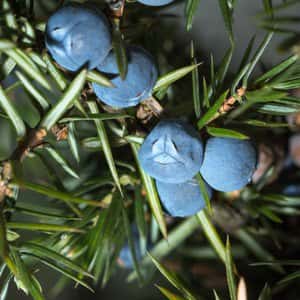
There are innumerable home remedies reputed to ease the pain of arthritis. One of the perennial favorites is golden raisins soaked in gin. Nobody knows quite how it works, and people have offered a variety of hypotheses. Most of these emphasize that only gin flavored with actual juniper berries (the traditional flavoring agent for gin) will work. One reader wondered, logically enough, if juniper berries would work on their own, without the gin or the raisins.
Will Juniper Berries Ease Joint Pain?
Q. When I read about the gin-soaked raisins solution for arthritis pain, I wondered why I would need the raisins and the gin and not just the juniper berries. You specified that the gin had to be flavored with juniper to be effective.
I started chewing a few berries until they are pulp and then washing them down with water. (I bought them in the spice section of my supermarket.) Since I began this daily ritual, I don’t need any pain pills such as Advil and my arthritis pains have mostly disappeared.
A. There are many species in the juniper family. Some of their berries have both anti-inflammatory activity and pain-relieving potential (Journal of Ethnopharmacology, Aug. 22, 2016).
These berries may also help with blood sugar and cholesterol control (International Scholarly Research Notices, online Nov. 11, 2014). In the past, we have warned against eating juniper berries for fear that they might upset the stomach or irritate the kidneys. That may be true only of the berries of certain species, however. The primary species used as a flavoring agent for gin and as a kitchen spice is Juniperus communis.
Gin-Soaked Raisins:
Juniper berries are not to everyone’s taste, as they are rather bitter. Consequently, some folks may be interested in more palatable remedies for their sore joints. Those who would like to know more about the gin-soaked raisin remedy will find it and many other natural anti-inflammatory approaches in our Guide to Alternatives for Arthritis.

